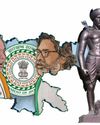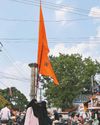Social security enrolment of workers is not a good measure of how many new jobs are created

EMPLOYMENT data has always been a subject of debate in India, more so now that the surge in social security enrolments is being cited as evidence to press home that 41.26 lakh new jobs were created between September 2017 and April this year. The Central Statistics Office data earlier this month raises more questions than it answers. Labour ministry sources too are wary of giving any straight ans wer on the doubts raised. “We can’t distinguish between formal isation and new jobs,” says a senior official, referring to the surge in the number of employees who have come under social security schemes such as Employees Provident Fund (EPF) and Employees’ Pension Scheme (EPS). The surge in enrolment is mostly due to the Pradhan Mantri Rojgar Protsahan Yojana (PMRPY), under which the government pays the employer’s share of contribution in the social security schemes for three years. Covering new employees earning up to Rs 15,000 per month, the government has to pay 3.67 percent as EPS and 8.33 percent as EPF contributions during that period. As a result, 54 lakh employees have been enrolled in the two schemes in less than two years, and the government has contributed Rs 1,200 crore to meet the employers’ commitment.
As against the government target of five lakh enrolments per year, labour ministry officials point out the enrolments have far surpassed the targets as companies strive to push for formalising employment during the three-year incentive period. “Unfortunately, everybody is going by provident fund data, which was never considered important in the past for tracking employment,” says Bharatiya Mazdoor Sangh (BMS) secretary-general Vrijesh Upadhyay, who is also a member of the EPFO’s central board of trustees.
This story is from the July 30, 2018 edition of Outlook.
Start your 7-day Magzter GOLD free trial to access thousands of curated premium stories, and 9,000+ magazines and newspapers.
Already a subscriber ? Sign In
This story is from the July 30, 2018 edition of Outlook.
Start your 7-day Magzter GOLD free trial to access thousands of curated premium stories, and 9,000+ magazines and newspapers.
Already a subscriber? Sign In

Trump's White House 'Waapsi'
Donald Trump's victory in the US presidential election may very well mean an end to democracy in the near future

IMT Ghaziabad hosted its Annual Convocation Ceremony for the Class of 2024
Shri Suresh Narayanan, Chairman Managing Director of Nestlé India Limited, congratulated and motivated graduates at IMT Ghaziabad's Convocation 2024

Identity and 'Infiltrators'
The Jharkhand Assembly election has emerged as a high-stakes political contest, with the battle for power intensifying between key players in the state.

Beyond Deadlines
Bibek Debroy could engage with even those who were not aligned with his politics or economics

Portraying Absence
Exhibits at a group art show in Kolkata examine existence in the absence

Of Rivers, Jungles and Mountains
In Adivasi poetry, everything breathes, everything is alive and nothing is inferior to humans

Hemant Versus Himanta
Himanta Biswa Sarma brings his hate bandwagon to Jharkhand to rattle Hemant Soren’s tribal identity politics

A Smouldering Wasteland
As Jharkhand goes to the polls, people living in and around Jharia coalfield have just one request for the administration—a life free from smoke, fear and danger for their children

Search for a Narrative
By demanding a separate Sarna Code for the tribals, Hemant Soren has offered the larger issue of tribal identity before the voters

The Historic Bonhomie
While the BJP Is trying to invoke the trope of Bangladeshi infiltrators”, the ground reality paints a different picture pertaining to the historical significance of Muslim-Adivasi camaraderie